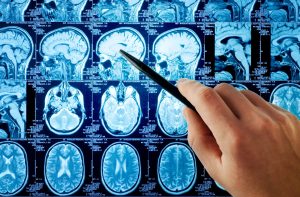A new, 10 year study showed that speed training – computer exercises that get users to visually process information more quickly – beat memory and reasoning exercises, the two other popular brain training techniques.

 There is new hope for preventing a tragic, incurable disease which affects more than five million Americans who are 65 and older – dementia and Alzheimer’s disease. According to an article in the Wall Street Journal, “A new, 10 year study showed that speed training – computer exercises that get users to visually process information more quickly – beat memory and reasoning exercises, the two other popular brain training techniques. Researchers found that a total of 11 to 14 hours of speed training has the potential to cut by as much as 48 percent the risk of developing dementia 10 years later.”
There is new hope for preventing a tragic, incurable disease which affects more than five million Americans who are 65 and older – dementia and Alzheimer’s disease. According to an article in the Wall Street Journal, “A new, 10 year study showed that speed training – computer exercises that get users to visually process information more quickly – beat memory and reasoning exercises, the two other popular brain training techniques. Researchers found that a total of 11 to 14 hours of speed training has the potential to cut by as much as 48 percent the risk of developing dementia 10 years later.”
The results of this study, entitled “Advanced Cognitive Training in Vital Elderly (ACTIVE)” were presented to the Alzheimer’s Association International Conference, held in July 2016.
Are you concerned about dementia or Alzheimer’s disease affecting you or a loved one? Click here to learn how balanced hormones can help.
“There are many different theories about the causes of dementia and Alzheimer’s disease,” noted Terri DeNeui, nurse practitioner and founder of EVEXIAS Medical Centers. “Gerontologists and neurologists have speculated about the factors which can exacerbate dementia for many years, but we really don’t understand the cause of this deterioration of the brain’s function.
“There is, however, one factor which consistently appears in these studies: imbalanced hormones play a key role in the brain’s deterioration in patients with dementia and Alzheimer’s. Recent research suggests that men with low testosterone are three times more likely to develop dementia and Alzheimer’s disease while women with low testosterone and estrogen are 50 percent more likely to develop these conditions.
The Importance of Testosterone for Brain Health
“A woman’s primary hormone is estrogen and her secondary hormone is testosterone. With men, it is the reverse. Thus, both genders require testosterone in order to remain healthy. This fact is important for the study of dementia because there are literally thousands of receptors in the brain – in the parietal temporal lobe area – for testosterone. These are responsible for such things as mood and mental clarity, and as we age, the levels of testosterone decline. This causes memory and focus to also decline and agitation to increase. These are all indicators of Alzheimer’s disease.
Medical researchers are also finding that hormones play a key role in beta amyloid disposition , which is another indicator of dementia and Alzheimer’s. With the onset of dementia, the brain’s neuro fibers become entangled and the synapses become coated. There is a direct correlation between balanced estrogen and testosterone hormones in the prevention of this condition.
“Unfortunately, once Alzheimer’s disease begins, it is not reversible. As a result, the most important consideration for anyone who might be genetically predisposed for these conditions is prevention. This means one must take action to ensure that his or her hormones are optimized throughout the aging process.”
Food for Thought
 In addition to hormone imbalance, there are other theories about lifestyle factors which might bring about this relentless cognitive decline. Terri DeNeui explains.
In addition to hormone imbalance, there are other theories about lifestyle factors which might bring about this relentless cognitive decline. Terri DeNeui explains.
“Food plays a critical role in helping someone avoid dementia,” she said. “Processed foods, the demineralization of food, and all of the pesticides and chemicals that are being used to grow our food, have been shown to impact the onset of dementia and then Alzheimer’s disease. This is particularly true in populations – such as lower socio-economic groups – which have a propensity to consume ‘fast foods’ and other highly processed foods.
“The toxins found in this type of food, affect the brain,” DeNeui said. “There is no question about this.”
“A good rule-of-thumb for choosing food for yourself and your family is this: If you can’t pronounce a word on the label, it’s probably not something you want to eat because, most likely, it’s not healthy!”
Will This Speed Training Change Treatment for Dementia?
“In order to participate in this ‘speed training’ brain exercise or any other type of preventive therapy, a person must feel good enough to get up and become active,” DeNeui noted. “If one’s testosterone is too low, they will not have the energy necessary to participate in these dementia prevention exercises.
“Hormones, B vitamins – found in green, leafy vegetables – and other fresh, non-processed food supply the ‘fuel’ needed to complete these rigorous mental exercises. Moderate exercise, such as walking 20-minutes each day, also increases our brain capacity.
“As for this current research on speed training, I believe it will be incorporated into current therapies for prevention of these conditions,” DeNeui noted. “However, there is no cure. The current approach for treating cognitive decline involves using medications which can slow down the decline, but the medications don’t halt the process.
“Even though most medical research and literature do not focus on it, prevention is the key. Once the condition is diagnosed and brain cells begin to die, the condition is irreversible,” she said.







